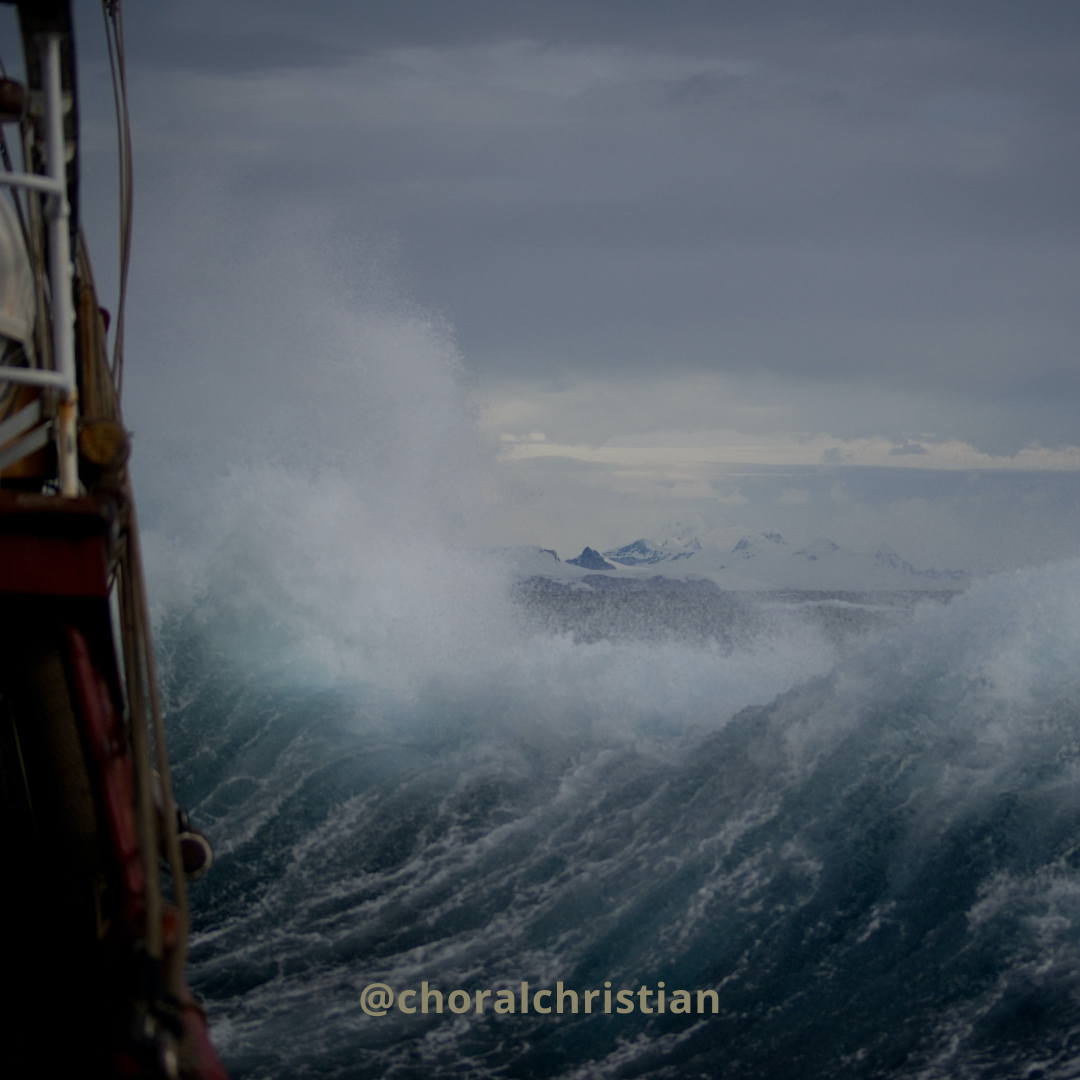Master, the Tempest Is Raging
Master the Tempest Is Raging was written by Mary Ann Baker and set to music by Dr H. R. Palmer in 1874. The song was published in Dr Palmer’s Songs of Love for The Bible School.
The song has as inspiration the story of Jesus and the disciples crossing the Sea of Galilee when they encountered a big storm and their boat was at risk of capsizing.
The Sea of Galilee lies about 80 miles north of Jerusalem. This was the lake Jesus knew as a child and as a young man.
On one journey to Galilee, the Saviour taught the multitudes crowded near the water’s edge.
After his teaching, Jesus invited his disciples to join him, and they set out together for the other side of the lake. Jesus and his disciples found themselves in a violent storm.
Mark’s account
“And when they had sent away the multitude, they took him even as he was in the ship. And there were also with him other little ships.
“And there arose a great storm of wind, and the waves beat into the ship, so that it was now full.
“And he was in the hinder part of the ship, asleep on a pillow: and they awake him, and say unto him, Master, carest thou not that we perish?
“And he arose, and rebuked the wind, and said unto the sea, Peace, be still. And the wind ceased, and there was a great calm.
“And he said unto them, Why are ye so fearful? How is it that ye have no faith?
“And they feared exceedingly, and said one to another, What manner of man is this, that even the wind and the sea obey him?”
All of us have seen some sudden storms in our lives. Some as violent and as scary as those on the Sea of Galilee.
At times, the storms are so overwhelming that we wonder, “Master, carest thou not that we perish?” God is asking us today, “Why are you so afraid? Have you still no faith?” The Lord’s rebuke is warranted.
He loved us so much that he sent his son to die for our sins. It was he who parted the Red sea to save the Israelites.
He saved Shadrack Meshack and Abednego from a fiery furnace and rescued Daniel from the Lion’s den. He gave the Israelites manna in the desert.
He turned water into wine and raised Lazarus from the dead. Yet somehow we doubt Him. Our faith should remind us that he can calm the troubled waters of our lives.
Mary Ann Baker’s brother suffered and died from the same respiratory illness that had killed their parents, leaving her behind with her sisters.
In addition to their own sickness and grief was poverty, which rendered them incapable of claiming and financing the return of their brother’s body to them for burial.
Though raised as a Christian, Mary’s trust in God broke under the strain of her brother’s death and her own diminished circumstances. “God does not care for me or mine,” she said. She had cried out:
Stanza 1: Master, the tempest is raging! The billows are tossing high! The sky is o’ershadowed with blackness. No shelter or help is nigh; Carest Thou not that we perish? How canst Thou lie asleep, When each moment so madly is threatening a grave in the angry deep?
Stanza 2: Master, with anguish of spirit, I bow in my grief today; The depths of my sad heart are troubled. Oh, waken, and save, I pray! Torrents of sin and of anguish. Sweep o’er my sinking soul; And I perish! I perish! Dear Master Oh, hasten, and take control.
She had concluded that “This manifestation of what they call ‘divine providence’ is unworthy of a God of love.” Does that sound at all familiar?
“I have always tried to believe in Christ and give the Master a consecrated life,” she said, “but this is more than I can bear.
What have I done to deserve this? What have I left undone that God should wreak His vengeance upon me in this way?” (Ernest K. Emurian, Living Stories of Famous Hymns, Boston: W. A Widdle Co., 1955, pp. 83–85.)
With time, God began to calm the winds of what Mary called “her unsanctified heart.” Her faith not only returned, but it flourished, and like Job of old, she learned new things, things “too wonderful” to have known before her despair.
On the Sea of Galilee, the stirring of the disciples’ faith was ultimately more important than the stilling of the sea, and so it was with her.
The sweet melodious chorus is a confession of God’s power. Mary, like the disciples, witnessed firsthand that:
The winds and the waves shall obey God’s will, Peace, be still! Whether the wrath of the storm-tossed sea, or demons or men, or whatever it be, no waters can swallow the ship where lies The Master of ocean, and earth, and skies; They all shall sweetly obey God’s will, peace, be still! Peace be still!
A lot of the time, we do not pay attention to the third stanza. Once God has calmed the raging storms of our lives, we forget to acknowledge what he has done for us. We fail to emphasise the sweet peace of this concluding verse:
Stanza 3: Master, the terror is over. The elements sweetly rest. Earth’s sun in the calm lake is mirrored, and heaven’s within my breast. Linger, Oh, blessed Redeemer! Leave me alone no more, and with joy, I shall make the blest harbour and rest on the blissful shore.
We can be reasonably sure that we will have some adversity in our lives. Some of it will have the potential to be violent and damaging and destructive.
Jesus said in John 16:33, “In the world, ye shall have tribulation: but be of good cheer; I have overcome the world.” Let us hold unto our faith in God, for when the Storm is over, we will be able to say
“Master, the terror is over, the elements sweetly rest… Linger, oh, blessed Redeemer! Leave me alone no more.”
“Whether the wrath of the storm-tossed sea or demons or men or whatever it be, no waters can swallow the ship where lies the Master of ocean and earth and skies. They all shall sweetly obey [his] will. Peace, be still!” In the name of Jesus Christ, amen.








All creatures shall open my voice.
I’m glad it helped you
It does have a contact page but here’s my email kalese@choralchristian.com